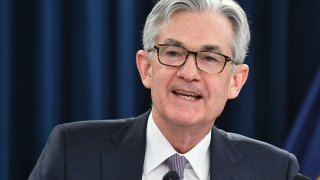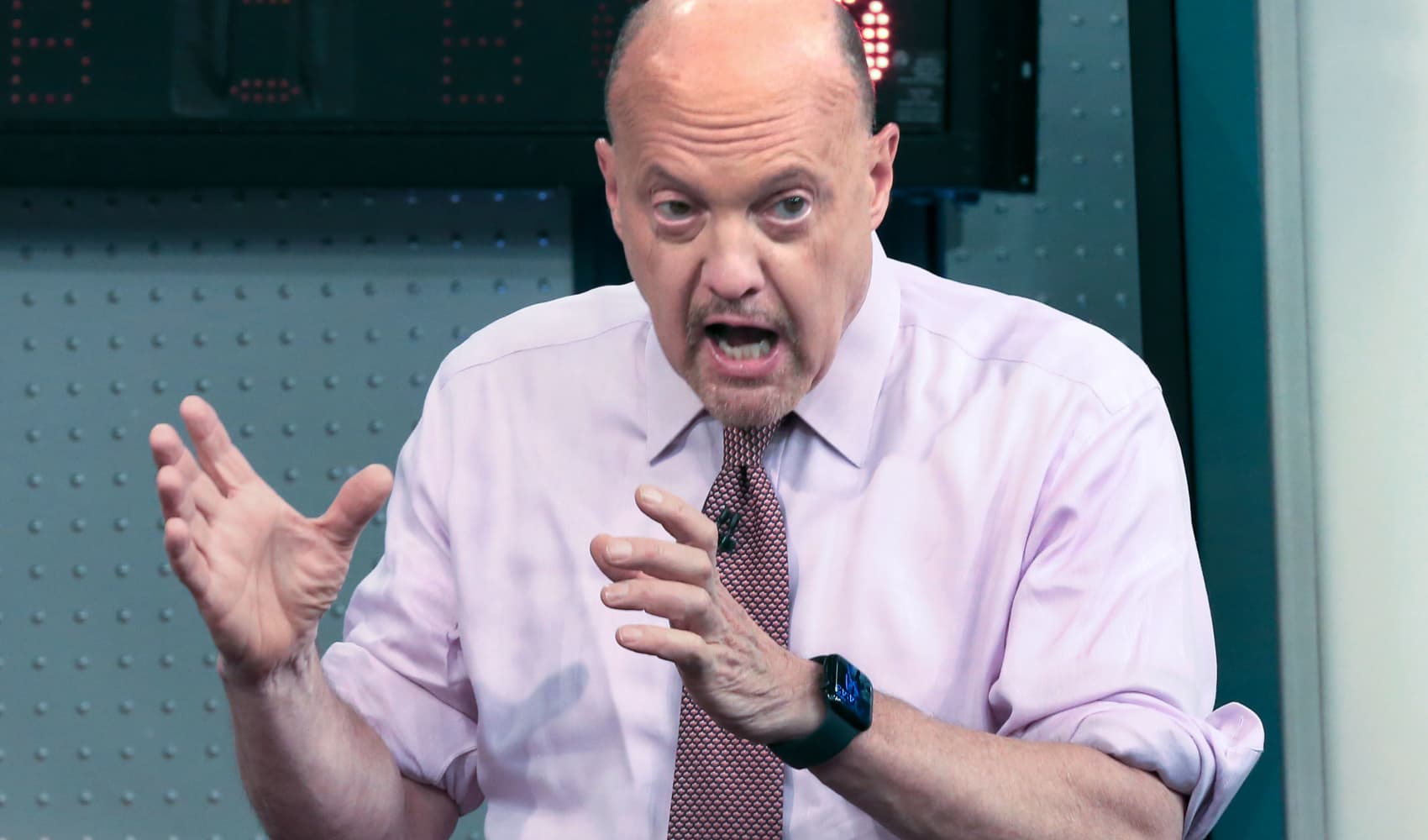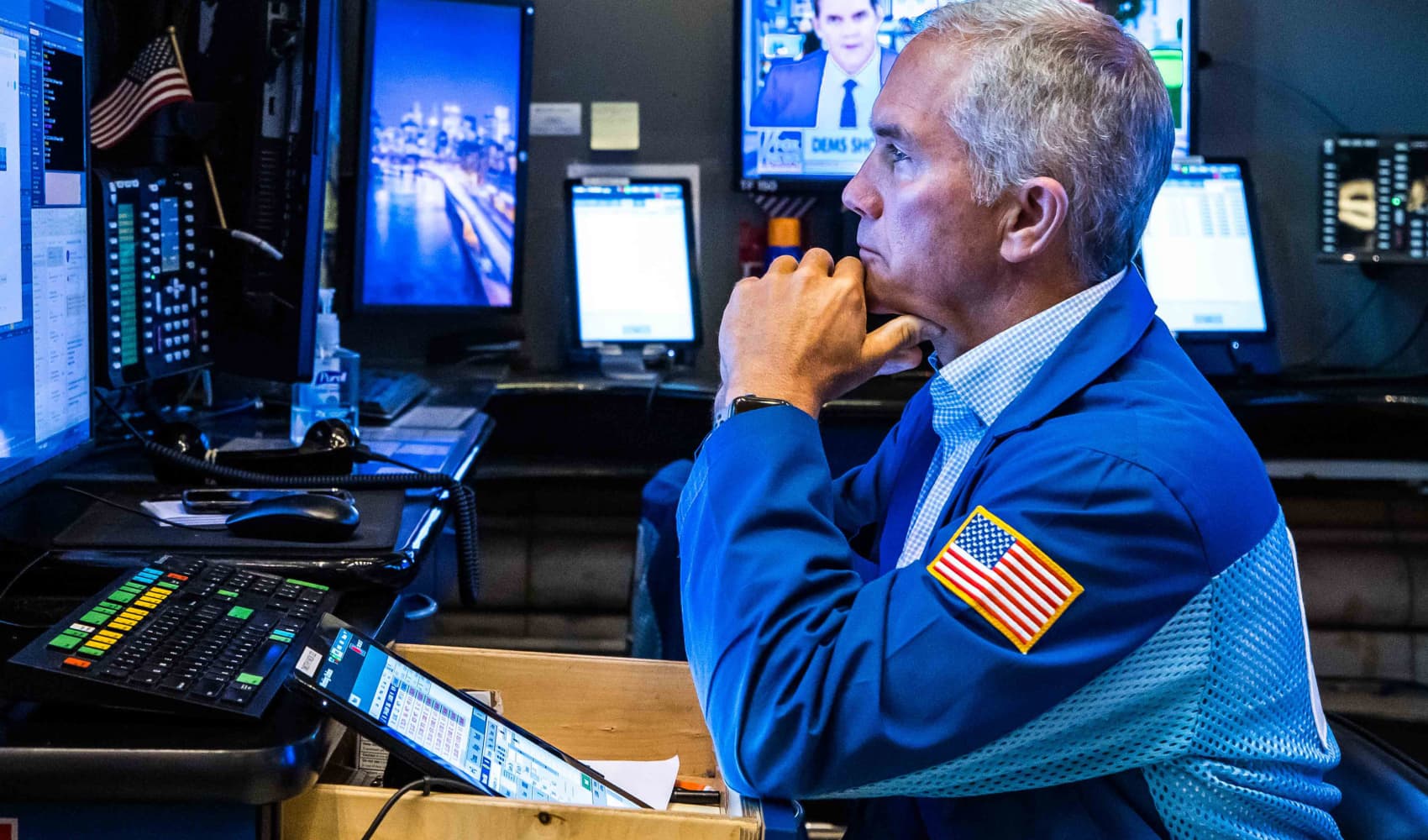
The Fed decided to keep rates near zero on Wednesday despite noting signs of economic rebound.
The Federal Reserve left interest rates near zero and the pace of asset purchases unchanged, but acknowledged an uptick in economic activity as the U.S. recovers from Covid-19.
Powell sees some froth in equity markets, says vaccinations a factor
Federal Reserve Chairman Jerome Powell said he does see some froth in "equity markets" and other places, but sought to attribute the conditions to factors beyond the central bank's accommodative policy.
Get South Florida local news, weather forecasts and entertainment stories to your inbox. Sign up for NBC South Florida newsletters.
"Some of the asset prices are high. You are seeing things in the capital markets that are a bit frothy. That's a fact. I won't say it has nothing to do with monetary policy, but it also tremendous amount to do with vaccination and reopening of the economy," Powell said during a news conference Wednesday.
"That's really what has been moving markets a lot in the past few months, this turn away from what was a pretty dark winter to now a much faster vaccination process and a faster reopening, so that's part of what is going on," Powell continued.
Money Report
— Kevin Stankiewicz
Fed’s Powell on crypto: Far more important to do it right than fast
Wells Fargo strategist says Powell slamming the door on near-term tapering
Michael Schumacher, a bonds strategist at Wells Fargo, said in response to Powell's remarks that the Fed chief all but assure markets that the central bank will not curb its asset purchases soon.
"He's certainly getting rid of tapering happening any time soon. He's slamming that door shut," he said. "It means that yields are a little less likely to go rocketing up. You're not going to get that wild card event where the Fed does talk about tapering fairly soon."
"It will be more interesting in June," he added. "You'll have a couple of months of hotter inflation prints. There will be more pressure on the Fed to explain this inflation framework."
— Patti Domm
Persistent inflation would take 'some time' and labor market improvement, Powell says
Fed Chair Jerome Powell said during his press conference that a persistent increase in unemployment that resulted in rising long-term inflation expectations was unlikely before the labor market had made a significant recovery.
"It seems unlikely, frankly, that we would see inflation moving up in a persistent way that would actually move inflation expectations up while there's still significant slack in the labor market ... For inflation to move up in a persistent way that really starts to move inflation expectations up, that would take some time and you would think it'd be very likely that we would be in very strong labor markets for that to be happening," Powell said.
— Jesse Pound
Powell: It will 'take some time' before Fed is satisfied with economic progress
Powell reiterated that the Fed will wait for inflation to moderately exceed its 2% target "for some time" before moving to curb its expansive monetary policy.
He also noted the economy is far away from the Fed's goal, a sign some investors could interpret as continued easy policy for the foreseeable future.
"The economy is a long way from our goals and is likely to take some time for substantial further progress to be achieved," he said. "We expect to maintain an accommodative stance to monetary policy until these employment and inflation outcomes are achieved."
"With regard to interest rates, we continue to expect it will be appropriate to maintain the current zero to 0.25 percent target range for the federal funds rate until labor market conditions have reached levels consistent with the committee's assessment of maximum employment and inflation has risen to 2% and is on track to moderately exceed 2% for some time," he added.
— Thomas Franck
Markets now focused on whether Powell will explain 'substantial further progress'
The Fed upgraded its view on the economy and said inflation will be transitory, but it provided no new information for markets in its statement.
Michael Arone, State Street chief investment strategist, said the market is now looking ahead to Fed Chair Jerome Powell's briefing. He noted the statement was as expected, and the markets did not move in response.
"Today's meeting is not what they decided on monetary policy. It's more about what they have to say about future policy," said Arone.
The Fed has said it would consider paring back its bond buying after it sees "substantial further progress" towards its goals for the economy. Fed watchers say the Fed is likely to discuss trimming the program in the summer and take action later this year or early next.
"Will Powell slip up and provide some kind of early warning on tapering? I don't think he will," said Arone. "I think he's going to be pressed more on what substantial further progress means. He's pretty clever and will probably remain flexible and elusive."
The Fed has said it would taper down its $120 billion in monthly asset purchases before it begins to raise interest rates.
— Patti Domm
Treasury yields hold slightly higher
The 10-year Treasury yield held on to its modest gains for the day after the Fed released its policy decision.
The key market rate was last trading at roughly 1.647%, well off its highs from earlier this year but still comfortably above where it began the week. Yields move inversely to prices.
— Jesse Pound
Early focus on Fed's description of economic indicators as 'strengthened'
Investors' early focus on the Fed's statement appeared to center on its characterization of signs of economic progress in recent weeks.
While its prior statement said that "indicators of economic activity and employment have turned up recently," its latest update says that those indicators have "strengthened."
Here is the full paragraph in context:
"The COVID-19 pandemic is causing tremendous human and economic hardship across the United States and around the world. Amid progress on vaccinations and strong policy support, indicators of economic activity and employment have strengthened. The sectors most adversely affected by the pandemic remain weak but have shown improvement. Inflation has risen, largely reflecting transitory factors. Overall financial conditions remain accommodative, in part reflecting policy measures to support the economy and the flow of credit to U.S. households and businesses."
— Thomas Franck
Fed holds interest rates near zero, sees faster growth and higher inflation
The Federal Reserve on Wednesday decided not to curb its easy-money policy despite an economy that it acknowledged is regaining steam.
As expected, the U.S. central bank decided to keep short-term interest rates anchored near zero as it buys at least $120 billion of bonds each month.
Despite noting the economic strength as well as inflation that is on the rise, the policymaking Federal Open Market Committee unanimously decided to make no changes in its approach. The post-meeting statement noted that efforts to combat the Covid-19 pandemic have helped boost the economy, though more needs to be done.
"Amid progress on vaccinations and strong policy support, indicators of economic activity and employment have strengthened," the committee said.
"The sectors most adversely affected by the pandemic remain weak but have shown improvement," it added. "Inflation has risen, largely reflecting transitory factors. Overall financial conditions remain accommodative, in part reflecting policy measures to support the economy and the flow of credit to U.S. households and businesses."
— Jeff Cox
Fed expected to leave rates unchanged, hint at economic revival
Federal Reserve officials are not expected to take any action as their regularly scheduled meeting wraps up on Wednesday. Nonetheless some market participants think some members of the Federal Open Market Committee may mention signs of positive economic trajectory when the central bank releases its statement at 2 p.m. ET.
The Fed has now been operating in emergency mode for more than one year since officials slashed their benchmark overnight lending rate to zero in spring 2020 in response to the Covid-19 shutdown. It also instituted a series of programs to keep markets liquid and credit flowing.
But now, signs are suggesting the economy is storming back amid the rollout of coronavirus vaccines and between extremely simulative fiscal and monetary policy. First-quarter gross domestic product, which will be reported on Thursday, is expected to show the economy grew by 6.5%. Second-quarter growth could be closer to 10%.
— Patti Domm, Thomas Franck






